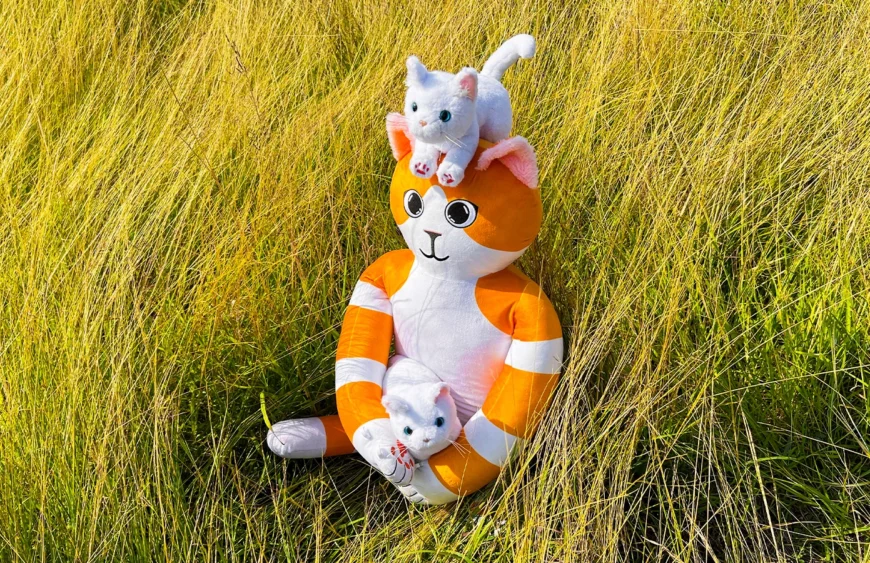Is It Strange That Adults Still Love Plush Toys?

Introduction
Many adults find solace in the simple comfort of plush toys in today’s fast-paced world, where stress and anxiety are commonplace. Once considered childhood companions, these soft items have made a significant comeback among grown-ups. We’ve noticed that some people have thoughts like this: Is it strange that adults still love plush toys? This resurgence isn’t merely about nostalgia; it’s a testament to the enduring need for comfort and emotional support.
The Psychological Comfort of Plush Toys
Emotional Support and Stress Relief
Plush toys offer more than just a soft touch; they provide emotional support. Cuddling a stuffed animal can release oxytocin, the “feel-good” hormone, which helps reduce stress and anxiety . This physical interaction can be especially beneficial during times of emotional distress or loneliness.
Transitional Objects in Adulthood
Psychologist Donald Winnicott introduced the concept of “transitional objects,” items that provide comfort during times of change. While typically associated with children, adults also use such objects to navigate life’s challenges . A plush toy can serve as a tangible source of stability and reassurance.
Cultural Acceptance and the “Kidult” Phenomenon
The Rise of Adult Toy Collecting
The term “kidult” describes adults who engage in activities traditionally associated with children, such as collecting toys. This trend has gained momentum, with many adults openly embracing their love for plush toys . The act of collecting and displaying these items has become a form of self-expression and a way to connect with one’s inner child.
Social Media Influence
Platforms like TikTok and Instagram have played a significant role in normalizing adult plush toy ownership. Users share their collections, unboxing experiences, and the joy these items bring, fostering a community that celebrates this shared interest . This online visibility has helped reduce the stigma and encouraged others to embrace their fondness for plush toys.
Therapeutic Benefits Beyond Childhood
Coping Mechanism for Mental Health
For some adults, plush toys serve as coping mechanisms for mental health issues. They provide a sense of security and comfort, helping individuals manage anxiety, depression, and other emotional challenges . The presence of a familiar, comforting object can be grounding during difficult times.
Enhancing Sleep Quality
Sleeping with a stuffed animal isn’t just a childhood habit; many adults find that it improves their sleep quality. The comfort and familiarity of a plush toy can create a calming bedtime routine, leading to better rest .
The Economic Impact of Adult Plush Toy Enthusiasm
Market Growth and Consumer Demand
The adult plush toy market has seen significant growth, with companies like Build-A-Bear reporting increased sales among adult consumers . This demand has led to the development of products specifically designed for adults, including luxury plush toys and customizable options.
Collectibles and Limited Editions
Limited edition plush toys have become highly sought after by adult collectors. Brands like Jellycat and Squishmallows release exclusive designs that often sell out quickly, demonstrating the strong market for adult-oriented plush toys .
Addressing the Stigma
Challenging Societal Norms
The notion that plush toys are only for children is outdated. Adults embracing these items challenge societal norms and redefine what is considered acceptable for adult behavior. This shift promotes a more inclusive understanding of comfort and self-care.
Personal Stories and Testimonials
Many adults have shared personal stories about the significance of plush toys in their lives. These narratives highlight the emotional connections and the positive impact these items have on well-being . Such testimonials help normalize adult plush toy ownership and encourage others to embrace their preferences without shame.
It’s Not Strange That Adults Still Love Plush Toys
The affection adults have for plush toys is not strange; it’s a reflection of the human need for comfort, security, and emotional connection. As society becomes more accepting of diverse forms of self-care and expression, the presence of plush toys in adult lives is likely to continue growing. Embracing these comforting companions can lead to improved mental health and a greater sense of well-being.
